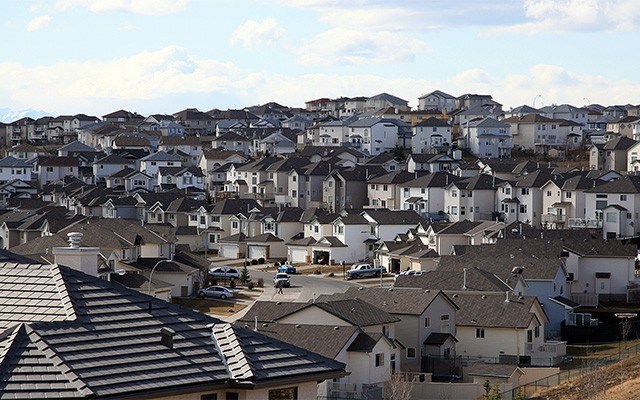A couple of colleagues at Pique have hit decade birthday milestones in the past year or so, and I'm about to break (gasp!) 30 in a couple weeks.
It's normal to pass into a new set of tens and take stock of your life and the events that have transpired within it.
What's changed? What's stayed the same?
Sometimes, you look at things and wonder: "How did we make (insert random concept where it's easy to scapegoat millennials) worse?"
With the state of the world these days, I guess this column could veer into something angry and political or comment on some sort of moral decline and self-centredness some in society seem to be embracing.
But nah, I'm just going to get some stuff that baffles me off my chest because people actively made decisions to take things that were adequate and changed them for the worse for no good reason.
My partner and I have spent more than our fair share of time in Calgary in the past month because of family commitments and it has its share of, well, unique qualities.
We spent much of our time in some of the relatively new suburbs and began to notice a common problem — the street names were all the same. In one area, every section of concrete slab that allowed vehicle traffic was called 'Copperfield' with only the type of thoroughfare changed, so beyond Copperfield Boulevard and Copperfield Crescent, planners had to get creative by also creating Copperfield Common, Copperfield Grove and Copperfield Close. In my first visit to the area a few years ago, my family's Garmin GPS came up with over a dozen Copperfield options, but with my aunt's place being on one of the newer Copperfields, it wasn't listed as an option. Trying to navigate a new neighbourhood by the last word of a street name and not the first is counterintuitive and unnecessarily challenging.
That these neighbourhoods exist wasn't new to me, but the extent of the scourge of this naming scheme was. We travelled to a few other communities and found the same difficulties (e.g. Auburn Bay and a number of other variations on the copper theme). Now don't get me wrong, everything else about these collections of houses was perfectly pleasant and safe, but previous ways of referring to our streets weren't broke, so what were these planners trying to fix?
The numeric system is easiest to understand, though it lacks pizzazz and personality. Naming a cluster of crescents around a certain theme (Ivy League universities, provinces, Shakespearean characters) can be fun, but your potential pitfall comes when you perhaps don't remember the exact name of a street, but you recall it was one of the major roles in The Tempest.
I get, perhaps, trying it out in one or two sections as an experiment, but how did the phenomenon become so widespread? Its shortcomings are demonstrably worse and its benefits are non-existent.
It makes sense that communities are changing and evolving both as homeowners demand more amenities and residents' lifestyles are adapting.
But neighbourhoods aren't, for example, like Facebook or Instagram, where there's potential gain from making the site harder to navigate. Notice how even though there's the option to thread your timeline chronologically, it never stays there? They're likely banking on you interacting with the site — and its ads — as you clamber around it trying to zigzag the minefield of TMI personal announcements, party photos and political screeds in search of genuine, interesting content.
No one is going to struggle to get around a neighbourhood, throw their hands up and compromise with an 'I guess I live here now.'
The other worsening piece of infrastructure is parking lots, but likely for the same reason as Facebook, since markets theoretically stand to benefit from you being there longer. If it's hard to leave in a given moment, well, what the heck, maybe you will pop into Dollarama to poke around and, hopefully, drop $20 on cheap cleaning products as you wait out the traffic surge. Most parking lots are objectively bad at best and dangerous at worst, but some of the lots you see at newer malls are labyrinthine, with only one funnel in or out — though the flow in is quick and easy and the ebb out is a crawl, to say the least.
Even if the set-up leads to an odd extra purchase here or there, one would expect that most consumers would favour a shopping complex where you don't feel like you have to answer three riddles to leave.
In a world where many things will get worse without needed attention, let's not use our energy worsening things that will be OK without our interference.




